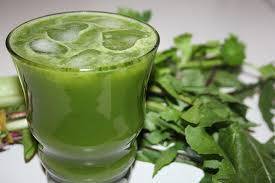The Importance of Bitter Leaf: A Nutritional and Medicinal Powerhouse
Bitter leaf, scientifically known as Vernonia amygdalina, is a plant native to Africa that has gained recognition for its numerous health benefits and culinary uses. Often found in traditional medicine and as a staple in various dishes, bitter leaf is more than just a vegetable; it is a vital component of many cultures and a powerful source of nutrition.
Nutritional Value
Bitter leaf is rich in essential nutrients, making it a valuable addition to any diet. It contains high levels of vitamins A, C, and E, along with several B vitamins. These vitamins play crucial roles in maintaining immune function, promoting skin health, and supporting metabolic processes. Additionally, bitter leaf is a good source of minerals such as calcium, iron, and potassium, which are essential for bone health, blood production, and proper heart function.
One of the most significant aspects of bitter leaf is its high antioxidant content. Antioxidants help combat oxidative stress in the body, reducing the risk of chronic diseases such as heart disease, diabetes, and cancer. By including bitter leaf in your diet, you can enhance your body’s ability to fight free radicals and promote overall health.
Medicinal Uses
Beyond its nutritional benefits, bitter leaf has long been utilized in traditional medicine across various African cultures. The leaves, stems, and roots of the plant are known for their therapeutic properties. For centuries, it has been employed to treat a wide range of ailments, including fever, malaria, digestive issues, and inflammation.
Research has shown that bitter leaf possesses anti-inflammatory, antimicrobial, and antifungal properties. These characteristics make it an effective natural remedy for infections and inflammatory conditions. Moreover, studies have indicated that bitter leaf may help regulate blood sugar levels, making it a potential ally for individuals with diabetes.
Bitter leaf is also renowned for its detoxifying abilities. It is often used in detox diets to cleanse the liver and improve overall digestive health. The presence of certain compounds in the leaf supports liver function, promoting the elimination of toxins from the body.
Culinary Applications
In addition to its health benefits, bitter leaf is widely used in cooking, particularly in African cuisine. Its distinct flavor, characterized by a sharp, slightly bitter taste, enhances various dishes, including soups, stews, and sauces. Bitter leaf can be used fresh, dried, or as a powder, making it a versatile ingredient in both traditional and modern cooking.
One of the most popular dishes featuring bitter leaf is the Nigerian soup known as "bitter leaf soup" or "ofe onugbu." This hearty dish combines the unique flavor of the leaves with meat, fish, and a variety of spices, creating a rich and nutritious meal. The use of bitter leaf in cooking not only adds depth to dishes but also boosts their nutritional value.
Environmental Impact and Sustainability
Growing bitter leaf is relatively easy, and it can thrive in various climates, making it an excellent crop for sustainable agriculture. The plant is resilient and requires minimal inputs, which is beneficial for smallholder farmers. By promoting the cultivation of bitter leaf, communities can enhance food security while providing a nutritious food source.
Furthermore, the increasing popularity of bitter leaf in global markets offers economic opportunities for local farmers. By tapping into the health food trend, communities can create income-generating activities centered around the cultivation and processing of bitter leaf.
Conclusion
In summary, bitter leaf is a remarkable plant that offers a wealth of nutritional and medicinal benefits. Its rich nutrient profile, therapeutic properties, and culinary versatility make it an essential addition to diets around the world. As interest in natural remedies and sustainable agriculture grows, the importance of bitter leaf will likely continue to rise, benefiting both individual health and local economies. Embracing this powerful plant can lead to healthier lifestyles and support sustainable practices within communities.




No comments yet
Be the first to share your thoughts!